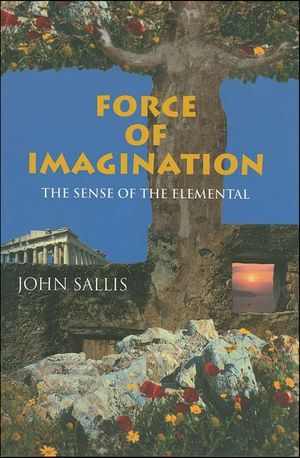Force of Imagination
Published by Indiana University Press
Force of Imagination
The Sense of the Elemental
John Sallis
A bold and original investigation into how imagination shapes thought and feeling.
"This is a bold new direction for the author, one that he takes in an arresting and convincing manner. . . . a powerful, original approach to what others call 'ecology' but what Sallis shows to be a question of the status of the earth in philosophical thinking at this historical moment." —Edward S. Casey
In this major original work, John Sallis probes the very nature of imagination and reveals how the force of imagination extends into all spheres of human life. While drawing critically on the entire history of philosophy, Sallis's work takes up a vantage point determined by the contemporary deconstruction of the classical opposition between sensible and intelligible. Thus, in reinterrogating the nature of imagination, Force of Imagination carries out a radical turn to the sensible and to the elemental in nature. Liberated from subjectivity, imagination is shown to play a decisive role both in drawing together the moments of our experience of sensible things and in opening experience to the encompassing light, atmosphere, earth, and sky. Set within this elemental expanse, the human sense of time, of self, and of the other proves to be inextricably linked to imagination and to nature. By showing how imagination is formative for the very opening upon things and elements, this work points to the revealing power of poetic imagination and casts a new light on the nature of art.
John Sallis is Liberal Arts Professor of Philosophy at Pennsylvania State University. His previous books include Being and Logos: Reading the Platonic Dialogues; Shades—Of Painting at the Limit; Stone; Chorology: On Beginning in Plato's Timaeus (all published by Indiana University Press), Crossings: Nietzsche and the Space of Tragedy and Double Truth.
Studies in Continental Thought—John Sallis, editor
Contents
Prolusions
On (Not Simply) Beginning
Remembrance
Duplicity of the Image
Spacing the Image
Tractive Imagination
The Elemental
Temporalities
Proprieties
Poetic Imagination
BUY NOW FROM
COMMUNITY REVIEWS

